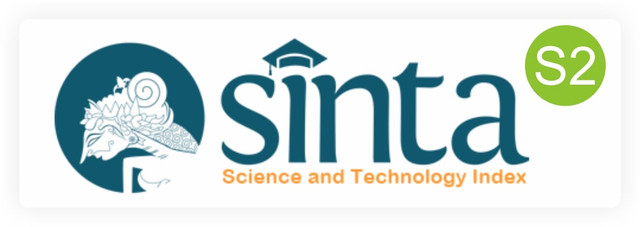Effectiveness of web based educational on improving knowledge of acne vulgaris self medication among senior high school students
DOI:
https://doi.org/10.12928/pharmaciana.v7i2.7240Keywords:
Acne vulgaris, adolescent, website, knowledgeAbstract
The presence of technology can provide real alternatives to build knowledge in delivering health education materials. The aim of this study was to investigate if web-based education methods may rising a student’s knowledge about self medication of acne. This research using an experimental pretest-posttest control group design while the sampling technique using convenience nonprobability sampling. Inclusion criteria for participants were senior high school students aged 13-19 years, active social media users, and willing to fill out the research questionnaire. Participants were allocated to the exclusion criteria as students who perform routine skin care in the acne treatment. Control group consisted of 62 respondents who were given face to face education and treatment group consisted of 62 respondents who were given website-based education. Data analysis were performed with a student t-test to assess the effect of educational intervention on student’s knowledge. The independent t-test showed there was a significant increase of knowledge between the control and the treatment groups  (p = 0,000) with 95% confidence level. This study demonstrate that web-based educational intervention had a significant increase on the student’s knowledge about acne vulgaris self medication.
References
Achroni, K., 2012, Semua Rahasia Kulit Cantik dan Sehat Ada disini, 23-26, Javalitera, Yogyakarta.
Andy, 2009, Pengetahuan dan Sikap Remaja SMA Santo Thomas 1 Medan Terhadap Jerawat, Skripsi, Fakultas Kedokteran Universitas Sumatra Utara, Medan.
Anggraini D., 2012, Hubungan Gambaran Diri dengan Interaksi Sosial pada Remaja yang Berjerawat, Skripsi, Fakultas Keperawatan, Universitas Andalas, Padang.
Anonim, 2013, Swamedikasi, Infarkes, Edisi 5, 25-28.
Atmoko, W.B., Kurniawati, I., 2009, Swamedikasi: Sebuah Respon Realistik Prilaku Konsumen di Masa Krisis, Bisnis dan Kewirausahaan, 2(3): 233-247.
Ayudianti, P., Indramaya, D.M., 2014, Study Retrospektif: Faktor Pencetus Akne Vulgaris, Berkala Ilmu Kesehatan Kulit dan Kelamin-Periodical of Dermatology and Venereology, 26(1).
Departemen Kesehatan Republik Indonesia, 2006, Pedoman Penggunaan Obat Bebas dan Bebas Terbatas, Direktorat Bina Farmasi Komunitas dan Klinik Ditjen Bina Kefarmasian dan Alat Kesehatan, Jakarta.
Departemen Kesehatan Republik Indonesia, 2008, Materi Pelatihan Peningkatan Pengetahuan dan Keterampilan Memilih Obat Bagi Tenaga Kesehatan, Direktorat Bina Farmasi Komunitas dan Klinik Ditjen Bina Kefarmasian dan Alat Kesehatan, Jakarta.
Hanley, T., 2006, Developing Youth-Friendly Online Counselling Services in the United Kingdom: A Small Scale Investigation into the Views of Practitioners, Counselling and Psychotherapy Research, 6(3): 182-185.
Notoatmodjo, Soekidjo, 2007, Promosi Kesehatan Teori dan Aplikasi, P.T. Rineka Cipta, Jakarta.
Pulungan, R., 2008, Pengaruh Metode Penyuluhan Terhadap Peningkatan Pengetahuan dan Sikap Dokter Kecil dalam Pemberantasan Sarang Nyamuk Demam Berdarah (PSN-DBD) di Kecamatan Helvetia Tahun 2007, Tesis, Universitas Sumatera Utara, Medan.
Santoso, S., 2010, Statistik Multivariat, P.T. Elex Media Komputindo, Jakarta.
Sunarto, M., 2010, Konseling HIV Online Berbasis Internet, Laporan, Fakultas Ilmu Keperawatan Universitas Indonesia.
Tjekyan, R.M.S., 2008, Kejadian dan Faktor Resiko Acne Vulgaris, Jurnal Kedokteran Media Medika Indonesia, 98(1): 37-43.
Tuong, W., Wang, A.S., Armstrong, A.W., 2015, Comparing The Effectiveness of Automated Online Counseling to Standar Web-Based Education on Improving Acne Knowledge: a Randomized Controlled Trial, Am J Clin Dermatol, 16(1): 55-60.
Yohan, 2013, Pengaruh Terpaan Media Online Detik.com Terhadap Tingkat Pengetahuan Umum Karyawan Mara Advertising Yogyakarta, Skripsi, Fakultas Ilmu Sosial dan Ilmu Politik, Universitas Atma Jaya Yogyakarta, Yogyakarta.
Downloads
Published
Issue
Section
License
Authors who publish with Pharmaciana agree to the following terms:
- Authors retain copyright and grant the journal the right of first publication with the work simultaneously licensed under a Creative Commons Attribution License (CC BY-SA 4.0) that allows others to share the work with an acknowledgment of the work's authorship and initial publication in this journal.
- Authors are able to enter into separate, additional contractual arrangements for the non-exclusive distribution of the journal's published version of the work (e.g., post it to an institutional repository or publish it in a book), with an acknowledgment of its initial publication in this journal.
- Authors are permitted and encouraged to post their work online (e.g., in institutional repositories or on their website) prior to and during the submission process, as it can lead to productive exchanges, as well as earlier and greater citation of published work.


1.png)











